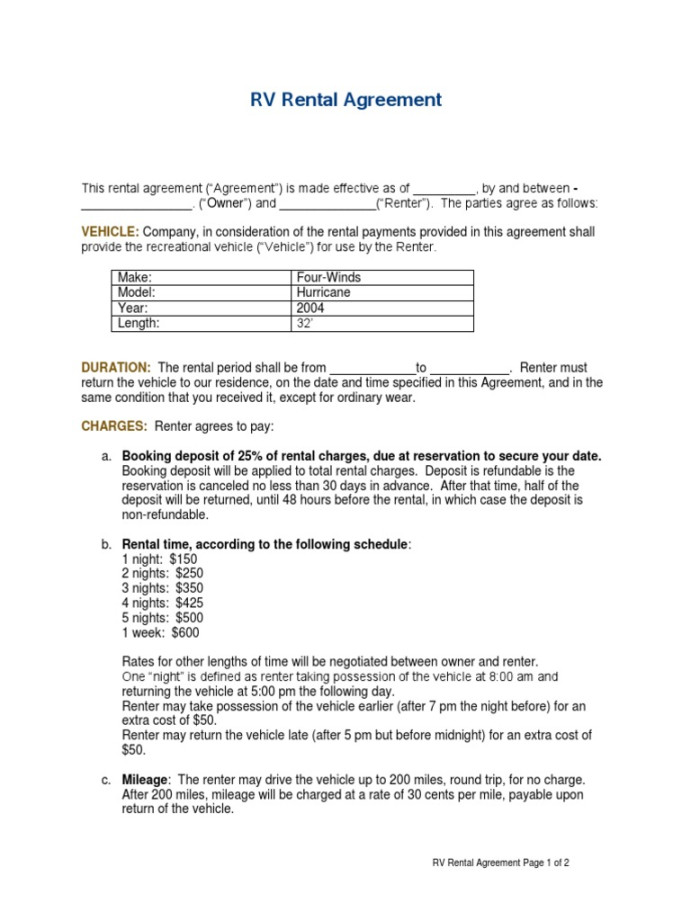An RV rental agreement is a legally binding contract between the RV owner (the lessor) and the renter (the lessee). This document outlines the terms and conditions of the rental, including the rental period, rental fees, security deposit, insurance requirements, and responsibilities of both parties. A well-crafted RV rental agreement is essential to protect both the RV owner and the renter.
Key Elements of an RV Rental Agreement
A comprehensive RV rental agreement should include the following key elements:

Image Source: scribdassets.com
1. Parties Involved
Lessor: The full legal name and address of the RV owner.
2. Rental Period
Start Date: The specific date and time when the rental period begins.
3. Rental Fees
Base Rental Fee: The total cost of the rental, including taxes.
4. RV Condition and Inventory
Initial Inspection: A detailed description of the RV’s condition, including any existing damage or wear and tear.
5. Insurance
Required Insurance: The minimum level of liability insurance required by the lessor.
6. Use of the RV
Permitted Use: The intended use of the RV, such as recreational or commercial purposes.
7. Maintenance and Repairs
Maintenance Responsibilities: Who is responsible for routine maintenance, such as oil changes and tire rotations.
8. Liability and Damages
Liability Waiver: A clause that waives the lessor’s liability for accidents or injuries that may occur during the rental period.
9. Termination of Rental
Early Termination: Circumstances under which either party may terminate the rental agreement early.
10. Governing Law and Dispute Resolution
Governing Law: The state or country whose laws will govern the agreement.
Design Elements for a Professional RV Rental Agreement
A well-designed RV rental agreement not only protects your legal interests but also enhances your professional image. Consider the following design elements:
1. Clear and Concise Language:
Use plain language and avoid legal jargon.
2. Professional Formatting:
Use a clean and professional font, such as Times New Roman or Arial.
3. Logical Organization:
Present information in a logical and easy-to-follow manner.
4. Visual Appeal:
Use a clean and professional layout.
5. Legal Disclaimer:
Include a disclaimer stating that the agreement is a legally binding contract.
By incorporating these design elements into your RV rental agreement, you can create a professional and legally sound document that protects both you and your renters.